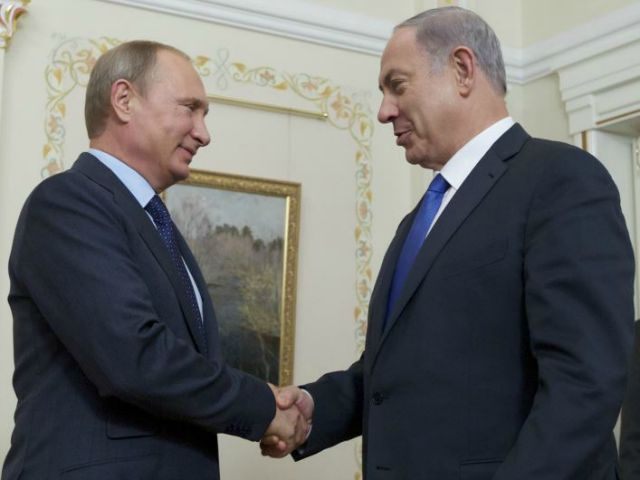Love him or hate him, Russian President Vladimir Putin’s military intervention in Syria unquestionably upended Middle Eastern politics. Putin supported Syrian President Bashar al-Assad, established several military bases in Syria, created a de-facto Russian-Shi’ite axis, confronted Turkey and forced the West to re-engage with him.
While all the region’s major players feel the influence of Russia’s military campaign, one country overlooked by commentators analyzing Russia’s Syrian campaign is Israel. Israel’s interests vis-à-vis Russia run wide and deep and are impossible for Jerusalem to ignore.
The history of the Israeli-Russian relationship is complicated, to say the least. The Soviet Unionsupported the creation of Israel in 1948, but then tilted towards the Arab world in the early 1960s and even threatened to attack Israel in both the 1967 Six Day War and 1973 Yom Kippur War.
With the emergence of Putin, though, Israel found the closest thing to a friend it’s ever had in Moscow. Israel and Russia share a common fear of terrorism, and in 2014 Putin was one of the few world leaders to support Israel’s Operation Protective Edge against Hamas, saying “I support Israel’s battle that is intended to keep its citizens protected.”
In 2005, Putin became the first Russian president to ever visit Israel, visiting the Western Wall — Judaism’s holiest site — as well as Israel’s Yad Vashem Holocaust memorial, where Putin observed a moment of silence. The Russian president even reportedly purchased an apartment in Tel Aviv for his then-84-year-old Jewish German teacher. Putin returned to Israel in 2012 as the guest of honor at a state dinner and to inaugurate a monument to the Red Army soldiers who defeated Hitler in World War Two.
Despite these positive feelings, Russian national interests remain Putin’s priority, and as Russia modernizes its military and steps to the fore in the Middle East, Moscow possesses significant capabilities to either help or hinder key Israeli interests.
First, although Israel remains determined to avoid entangling itself in Syria’s intractable war, there is one “red line” Jerusalem remains determined to enforce: it will not allow the transfer of advanced weapons from Iran or Syria to archenemy Hezbollah. The Israeli Air Force has not hesitated to enforce this policy, striking weapons convoys in Syria destined for Hezbollah numerous times since the start of the Syrian war.
Read more at Reuters

COMMENTS
Please let us know if you're having issues with commenting.